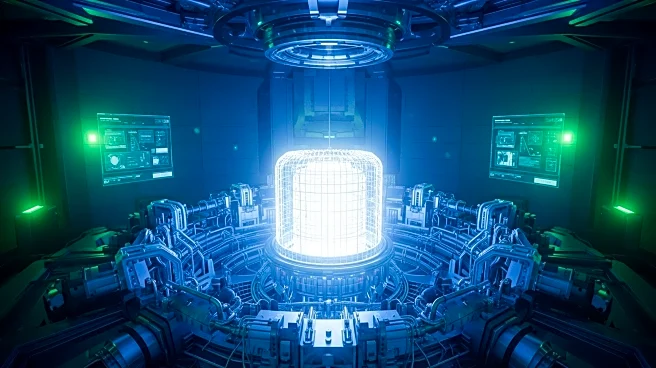What's Happening?
Fusion startups are attracting significant investment, with several companies raising over $100 million to develop commercially viable fusion power plants. These startups are leveraging advances in computer chips, AI, and superconducting magnets to design sophisticated reactors. The technology promises to harness the nuclear reaction that powers the sun, offering nearly limitless energy. Notable companies include Commonwealth Fusion Systems, Helion, and TAE Technologies, each pursuing unique reactor designs. The industry is gaining momentum following a U.S. Department of Energy lab's successful controlled fusion reaction, marking a critical step towards scientific breakeven.
Why It's Important?
The influx of investment into fusion startups highlights the growing interest in nuclear fusion as a sustainable energy solution. Fusion power has the potential to revolutionize the energy sector, providing a clean, abundant source of electricity that could replace fossil fuels and reduce carbon emissions. Successful commercialization of fusion technology could disrupt trillion-dollar markets, offering a reliable alternative to traditional energy sources. The progress made by these startups reflects the broader shift towards innovative energy solutions, driven by technological advancements and increasing demand for clean energy.
What's Next?
Fusion startups are focused on achieving commercial breakeven, where the energy produced exceeds the total consumption of the facility. Companies like Commonwealth Fusion Systems and Helion are working towards operational reactors by the late 2020s, with plans to begin construction on commercial power plants. The industry faces technical challenges, including the need for precise control of plasma and efficient energy conversion. Continued investment and collaboration with research institutions will be crucial for overcoming these hurdles and realizing the potential of fusion energy.










